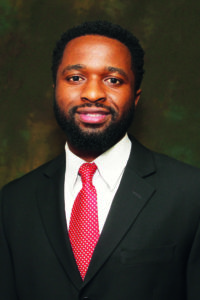
Pain is often fully experienced in isolation. It’s these experiences that serve as some of the most defining moments in life. The history of race cannot be recounted without sorrow. It remains a constant reminder of our differences, a difference that has forged a unique experience in the inequality of humanity—the Black experience.
For some, the recorded videos of Black lives being taken so maliciously without regard for another human’s life is new and shocking. Unfortunately, these events are all too familiar for Black families. This Black experience is one that has been lived in isolation for years. These moments define and reinforce the idea that we are inferior and, even worse, less than human when compared to another. These ideas have been passed down the generations.
One thing that is new and unfamiliar in recent months are those people who have offered their voice for change. This collective voice is no longer just Black voices in the shadows of our culture. It is voices of different backgrounds, races and religions. Protests and empathy are no longer segregated. There has been a conscious decision to no longer allow the pain from inequality in another human being to be experienced in isolation. This new, unfamiliar place is part of the story that is needed to make change. I’ve been struggling with this thought often: What responsibility do I have in all of this? And what kind of intention should I grant my voice?
As an aspiring vascular surgeon, I’ve made a commitment to learn this craft and reach my full potential. My purpose to serve people feels as if it is explicitly implied by its title. This is a huge life commitment, and balancing other responsibilities can be very challenging. However, I cannot ignore that also implied in my title—as well as those of my colleagues—is the power that it lends itself in any community. Everyday people trust us with their lives in a very vulnerable way. Patients come into our hospitals from all walks of life seeking support, guidance and our tools for healing. When it comes to race relations within healthcare, there are still conversations to be had about disparities and misrepresentation.
Our healthcare system still needs work, and at times it mirrors the same systems and prejudices that have let minorities down and instilled fear, not security. Maybe our role as providers is to challenge our implicit biases that allow us to continue to perpetuate these failings in our system when dealing with vulnerable populations.
When I was asked to write a piece for Vascular Specialist on this topic, I wasn’t sure what to say or what I should write. It is not very often that the topic of race in society, outside of the topic of healthcare, is brought up explicitly in a professional platform such as this one. The idea of writing this was an uncomfortable one that tapped into a place of fear. We all want to be respected and remembered for our great work in the field, not about what has made us different and challenged our equity. Some of us feel like we just want to exist by keeping our head down and working hard, but we often reach the realization that keeping your head down does not save you from inequality. As I took a step back, I was able to see that it is this fear—and feelings of discomfort—that can hinder change.
Osarumen Okunbor, MD, is a vascular surgery fellow at the University of Washington in Seattle.











